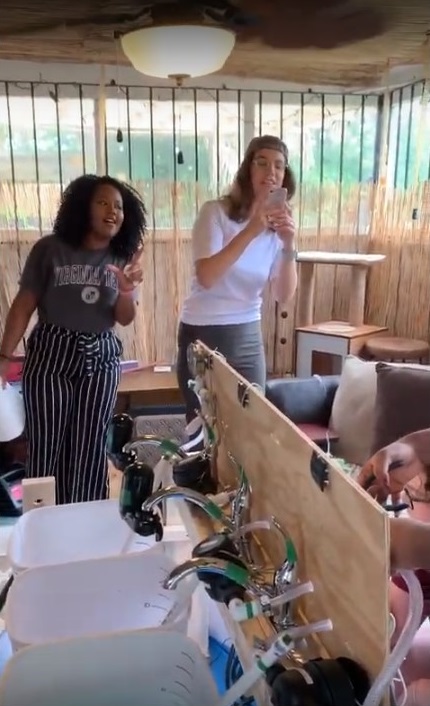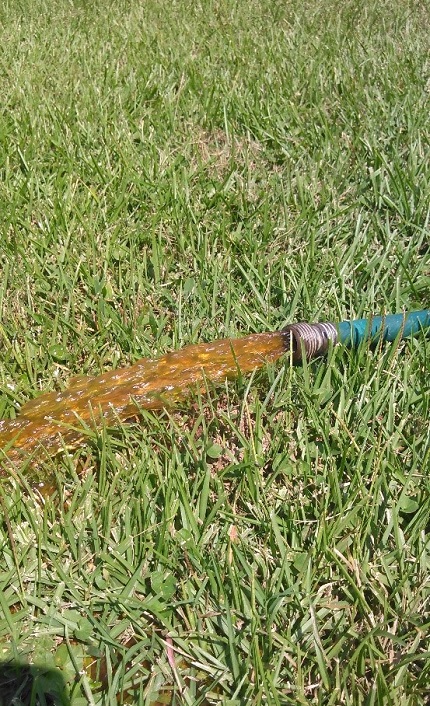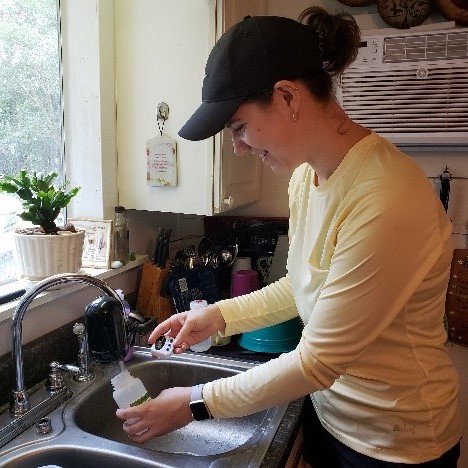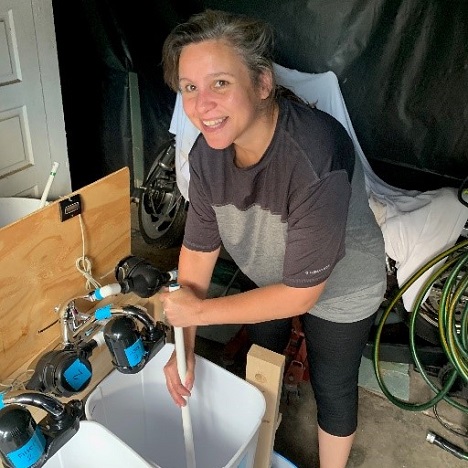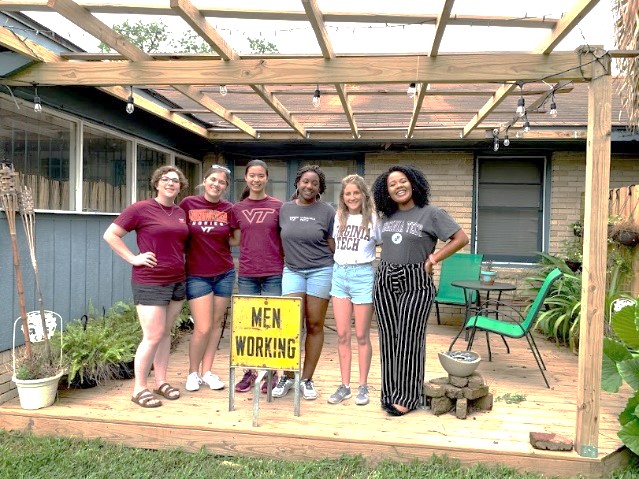State and Local Spotlight:
Louisiana State University Health
Organization: Louisiana State University School of Public Health
Location: New Orleans, Louisiana
Contact: Adrienne Katner, Assistant Professor, Environmental and Occupational Health;
akatn1@suhsn.edu; 504.568.5942
The Louisiana State University Health, within the School of Public Health, conducted a program to highlight the areas of exposure of lead in water and to assist residents in locating the most cost-effective solutions.
The goal of this project is to address the issue surrounding lead and water and provide the public with education to locate quality, easy-to-install, and cost-effective water filters as an approach to reducing exposures to lead and other contaminants in tap water.
Our project was built on work previously originated by researchers working in Washington (DC), Flint (Michigan), New Orleans, as well as other sites around the nation. Our project aims to assist the public with resources to determine an individual’s risk to lead exposures in water and how to identify cost-effective water treatment systems.
Through this project, we were able to provide online information to the public, including resources and treatment recommendations, as well as guidelines for public health officials to assist in serving rural and Spanish-speaking communities. To fulfill our project’s goals, we tested water filters and surveyed the best methods to reach rural and Hispanic populations, we specifically focused on obstacles to access, select, use and maintain water filters; to do so we set out to build a model to inform the public of their risks of exposures to lead in water in the United States.
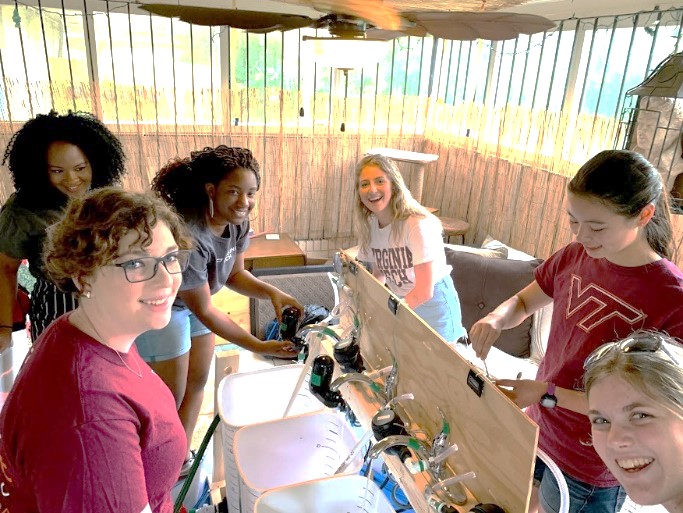
Virginia Tech engineers building a rig to withstand hurricane-force winds – and test water filters (May 23, 2019). From left to right: rig designer Jeannie Purchase, MS; graduate student Rusty Rouillier; and undergraduates Jesika McDaniel, Paighton Vanzant, Ailene Edwards, and Sarah Loomis. Photo courtesy of Adrienne Katner.
Along the way, we encountered a few barriers, one being the general distrust of government agencies and university researchers. We found that the solution to this barrier was to work alongside the community groups to establish trust and to commit to providing the services to the community.
What stood out as the most impactful element of our project was both the production of the education material, and resources to alert low-income, Hispanic, and rural communities of the risks of lead in water, as well as low-cost evidence-based remediation approaches. This project assisted in changing lives by providing education to those that were alerted to the water crisis from the results of Flint, Michigan, throughout the project we have received feedback from members of these communities noting their appreciation for the educational resources to better their living conditions.
This project carried over a span of five years, including two years to implement and three years of structure and planning. Though the project has come to an end, the outreach methodologies and the educational resources that resulted from this project will continue to be used and promoted into the future. The project as funded by the U.S Department of Housing and Urban Development (HUD), as well as the Environmental Protection Agency (EPA), which provided the funds to field test water filters, and to build an easily accessible website to assist the public in checking their exposure to lead in drinking water. Additional funding was provided from Spring Point Partners and the Louisiana Board of Regents.

